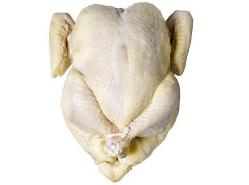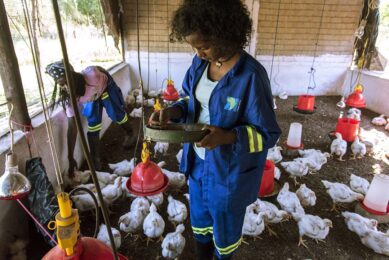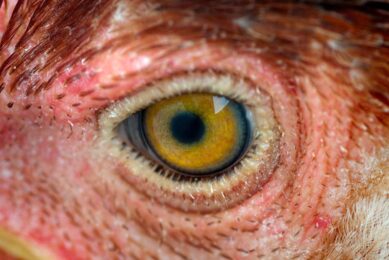Research suggests chickens are risk to human health

New evidence from Dutch research indicates that eating chicken can cause resistance to antibiotics in humans.
Patients suffering from serious urinal or bloodstream infections – caused by so-called ESBL-bacteria or ‘superbugs’ – cannot be cured with the most important antibiotics.
In one in five patients these ESBL-bacteria are genetically identical to the antibiotic resistance bacteria that have been found in chicken.
The findings suggest that the affected patients obtained the bacteria direct or indirectly from chicken. The research was published in the scientific journal Clinical Microbiology and Infection.
All chicken infected
Nearly all chicken in Dutch supermarkets and at poultry farms are infected with ESBL-bacteria.
ESBL stands for Extended Spectrum Beta-Lactamase, which are enzymes that have developed a resistance to antibiotics like penicillin. ESBL enzymes are most commonly produced by two bacteria – Escherichia coli (E. coli) and Klebsiella pneumoniae.
The scientists say that their findings not conclusively prove that chicken meat is the source of the infection, but it is a strong lead. Epidemical observations, however, show that in the past years antibiotic resistance in humans and in chicken increases proportionally.
Direct link
Roel Coutinho, director of the Dutch National Institute for Public Health and the Environment, says the connection now is well demonstrated.
“Sufficient to an extent that I say: this is another example of such a strong indication and such a threat that the use of antibiotics in the poultry sector must be strongly reduced,” he said.
In Dutch animal husbandry more antibiotics are used than in any other European country. They are a cheap means for keeping the animals healthy.
Veterinarians have an interest in prescribing antibiotics, because they are also pharmacists. Vets, however, claim that they are pressured by farmers to prescribe antibiotics. If they don’t the farmer hires another veterinarian who is more willingly.
Reduce use
In 2010 the previous Dutch Minister of Agriculture demanded that the use of antibiotics in animal husbandry should be reduced by 20% compared to 2009, but clear data on the use have never been demonstrated.
Dutch government believes self-regulation by the sector is more effective than legislation, because the support would be greater. “Leave it up to us,” the poultry sector said. On a voluntary basis it has started registering antibiotic use.
Join 31,000+ subscribers
Subscribe to our newsletter to stay updated about all the need-to-know content in the poultry sector, three times a week. Beheer
Beheer








 WP Admin
WP Admin  Bewerk bericht
Bewerk bericht